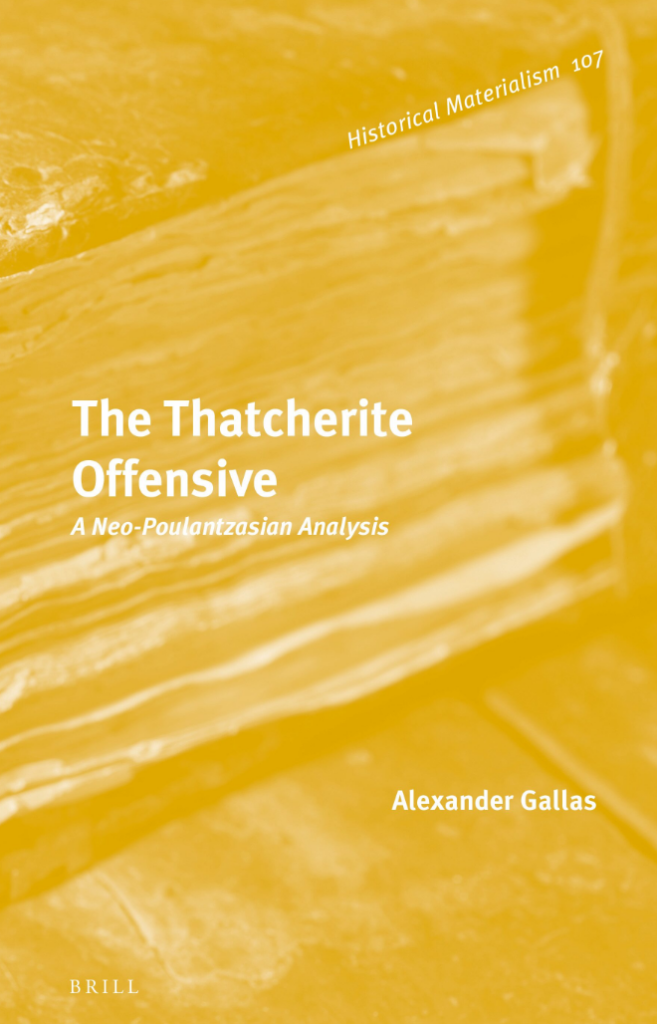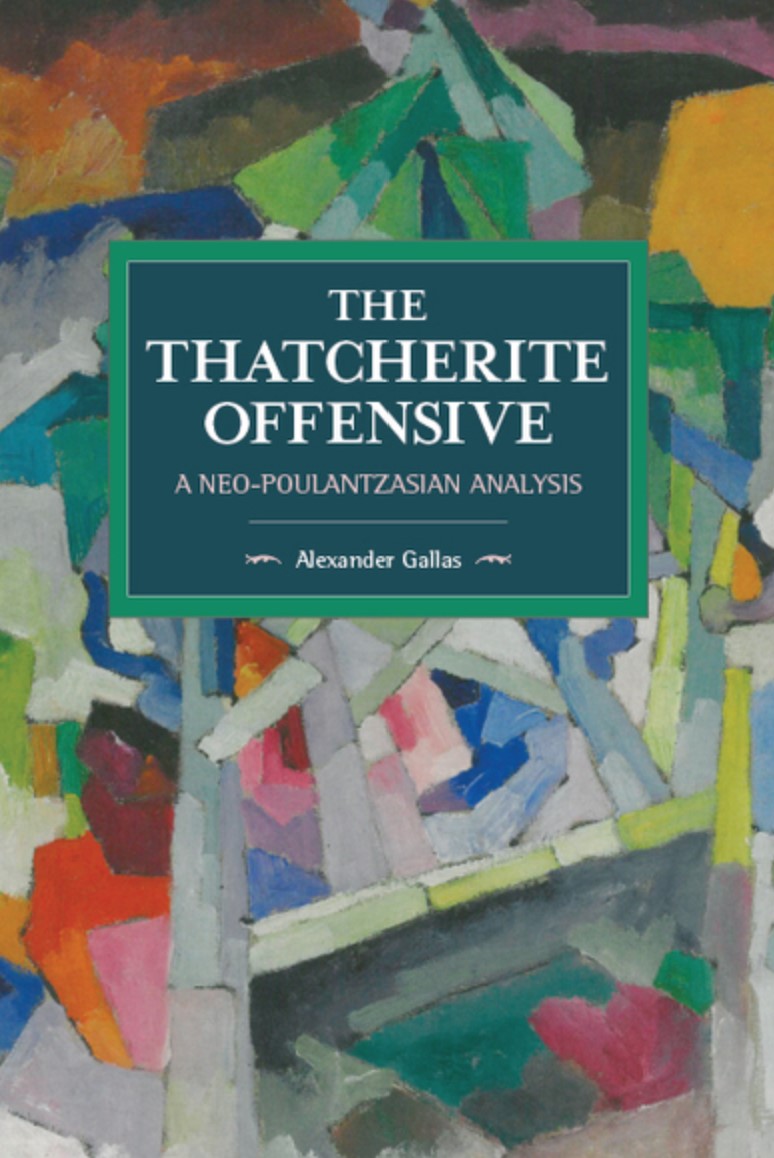Alexander Gallas, University of Kassel
In The Thatcherite Offensive, Alexander Gallas provides a class-centred political analysis of Thatcherism. Drawing upon Greek state theorist Nicos Poulantzas, he challenges both mainstream and critical accounts of British politics in the 1980s and 90s. He shows that Thatcherism’s sucess and novelty, indeed its unity as a political project, lay in the fact that the Thatcher governments profoundly shifted class relations in Britain in favour of capital and restructured the institutions underpinning class domination. According to Gallas, it was an integral part of the Thatcherite project to directly intervene in labour relations, to deprive workers of their ability to forge coalitions, and to smash militant trade unionism.
Biographical note
Readership
Reviews
Bob Jessop, Lancaster University“Alexander Gallas’ fresh analysis of Thatcherism reveals the systematic attack on labour as key to its strategy of how to secure capitalist accumulation. This is not just a historical exercise. Only when we understand Thatcherism can we comprehend the challenges and possibilities of how to move beyond current austerity policies. A must read for everyone who believes that there is such a thing as society.”
Andreas Bieler, University of Nottingham
“Alexander Gallas’s book is a highly innovative account of Thatcherism as a class political regime, which reveals, with great clarity, the value added of a political analysis based on Nicos Poulantzas’s state theory.”
John Kannankulam, University of Marburg
Table of contents
List of Tables
Preface and Acknowledgements
IntroductionPART I: THATCHERISM AND THE NEO-POULANTZASIAN APPROACH
1. The Hall-Jessop Debate
2. Neo-Poulantzasian Political Analysis
PART II: CLASS AND POLITICS IN BRITAIN, 1977–99
3. Method of Presentation
4. Pre-history: Britain in Crisis (–1977)
5. Emergence: A New Agenda for the Conservative Party (1977–9)
Case Study: Preparing for Government – Conservative Policy Papers from 1977
6. Material Gains: Conducting Class Politics by Stealth (1979–84)
7. Instability and Confrontation (1984–8)
Case Study: Attacking the Union Movement – The Miners’ Strike
Case Study: Dividing the Nation – The ‘Big Bang’ and the Liberalisation of Financial Markets
8. Stabilisation: Entrenching the Advance (1988–92)
9. Erosion: Losing Control (1992–9)
PART III: THE AFTERMATH
10. The Consequences of Thatcherism
11. New Labour and the Thatcherite Legacy
Conclusion
References
Index


